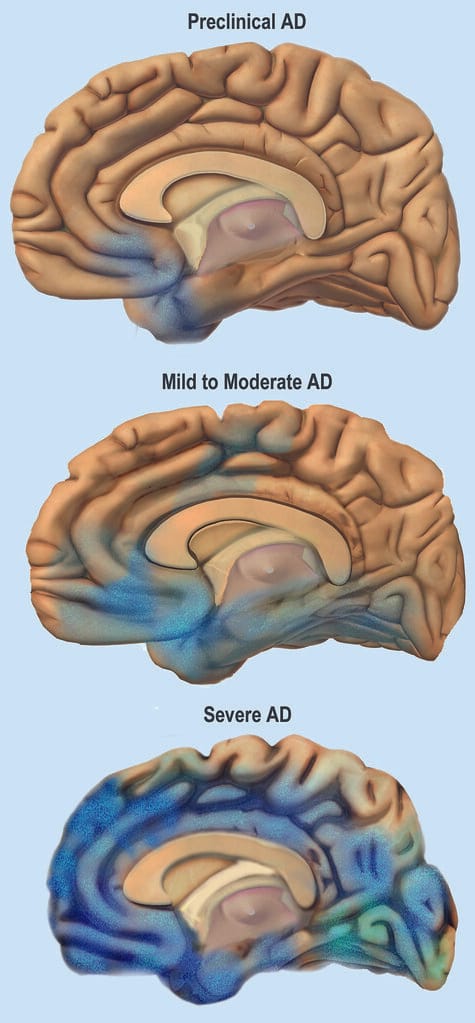Gates Foundation Launches $1 Million Prize to Accelerate AI Solutions for Alzheimer's Disease
The Bill & Melinda Gates Foundation has announced a groundbreaking $1 million prize competition designed to harness artificial intelligence in the fight against Alzheimer's disease, potentially revolutionizing how researchers approach one of the world's most devastating neurological conditions affecting over 55 million people globally.
A Strategic Investment in AI-Driven Healthcare Innovation
The Gates Foundation's latest initiative represents a significant escalation in the battle against Alzheimer's, leveraging the power of artificial intelligence to address a disease that costs the global economy an estimated $1.3 trillion annually. This prize competition specifically targets AI applications that can accelerate drug discovery, improve early diagnosis, or enhance patient care for those suffering from dementia and related cognitive disorders.
"We're at an inflection point where AI capabilities are meeting urgent healthcare needs," said a Gates Foundation spokesperson. "This prize aims to catalyze innovation that could transform outcomes for millions of families affected by Alzheimer's worldwide."
The Growing Alzheimer's Crisis Demands Innovation
The timing of this announcement couldn't be more critical. Current statistics paint a sobering picture:
- 55.2 million people worldwide are living with dementia, with Alzheimer's accounting for 60-70% of cases
- Every 3 seconds, someone develops dementia globally
- $321 billion was spent on dementia care in the United States alone in 2022
- By 2050, the number of people with Alzheimer's is projected to triple without breakthrough interventions
Traditional drug development for Alzheimer's has been notoriously challenging, with a failure rate exceeding 99% in clinical trials. The disease's complex pathology and the brain's protective barriers have stymied researchers for decades, making AI-assisted approaches increasingly attractive as potential game-changers.
AI's Promise in Neurological Research
Artificial intelligence has already demonstrated remarkable potential in healthcare applications, from diagnosing diabetic retinopathy to predicting protein structures. In Alzheimer's research specifically, AI applications are showing promise across multiple fronts:
Drug Discovery and Development: Machine learning algorithms can analyze vast molecular databases to identify potential therapeutic compounds, significantly reducing the time and cost of early-stage drug discovery. Companies like DeepMind have already used AI to predict protein folding patterns, which could unlock new understanding of amyloid plaques and tau tangles—hallmarks of Alzheimer's disease.
Early Detection and Diagnosis: AI-powered analysis of brain imaging, speech patterns, and even retinal scans is enabling earlier detection of Alzheimer's markers, potentially years before traditional symptoms appear. Earlier intervention could dramatically improve patient outcomes and quality of life.
Personalized Treatment Approaches: AI can help identify patient subgroups that might respond differently to treatments, enabling more targeted and effective therapeutic strategies.
Competition Framework and Expected Impact
While specific details of the competition criteria remain to be fully disclosed, the Gates Foundation typically structures such challenges to maximize global participation and real-world impact. Previous Gates Foundation competitions have attracted submissions from leading universities, startup companies, and independent researchers across six continents.
The $1 million prize pool is substantial enough to attract serious contenders while enabling multiple awards to recognize different innovative approaches. This strategy has proven effective in the Foundation's previous health-focused competitions, which have generated breakthrough solutions for malaria, tuberculosis, and other global health challenges.
Building on a Legacy of Strategic Healthcare Investment
This AI-focused Alzheimer's prize builds on the Gates Foundation's broader commitment to neurological research. The foundation has previously invested over $50 million in dementia research initiatives, including funding for the Dementia Discovery Fund and supporting collaborative research networks worldwide.
The foundation's approach emphasizes scalable solutions that can benefit patients regardless of their geographic location or economic circumstances—a crucial consideration given that lower and middle-income countries are projected to bear 71% of the global dementia burden by 2050.
The Path Forward
The Gates Foundation's $1 million AI Alzheimer's prize represents more than just financial incentive—it's a strategic catalyst designed to accelerate the convergence of artificial intelligence and neurological research. By attracting diverse, innovative approaches from global researchers, this competition could generate breakthrough solutions that fundamentally change how we prevent, diagnose, and treat Alzheimer's disease.
For the millions of families currently affected by Alzheimer's and the countless more who will face this challenge in the coming decades, this investment in AI-driven innovation offers a beacon of hope in an otherwise daunting landscape. The race to solve one of humanity's most complex medical puzzles has officially entered the age of artificial intelligence.
